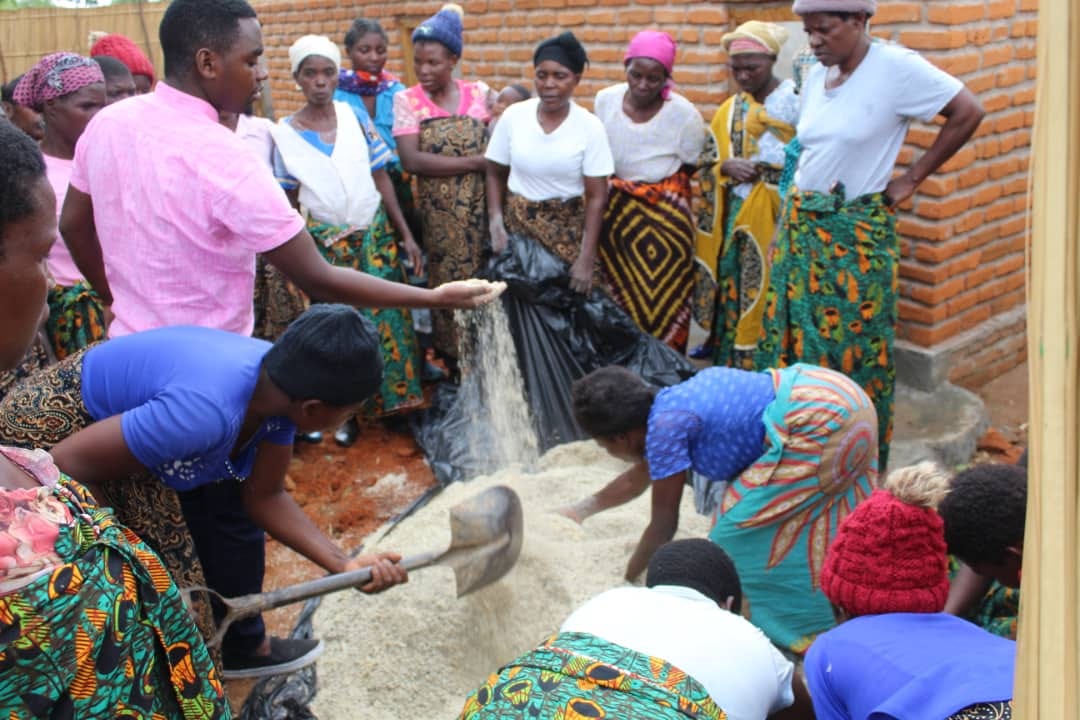Women Empowered Through Grant for Pig Farming, CARD Promotes Climate-Smart Agriculture
Churches Aid in Relief and Development (CARD) grants K2 million to women's pig farming groups, promoting climate-smart agriculture in Mchinji district.
MCHINJI, MALAWI — Two groups of women from T/A Simphasi and Kapondo in Mchinji district have been given a new lease of life with a K2 million grant each as a startup for their pig farming production by Churches Aid in Relief and Development (CARD), writes Gerald Fanuel.
The grant has been made through a project called Promoting Agro-Ecology Transition for Enhancing Resilient Agriculture (PAET-ERA), which is aimed at promoting climate-smart agriculture by increasing crop productivity, food, nutrition, and income hindered by climate change.
The project targets 40 women in two groups of 20 members who are involved in pig production.
Speaking to AfricaBrief, Tionge Partson from Chimtawa village of T/A Simphasi in Mchinji district admitted that CARD's grant is a real game-changer.
"The grant helped us buy improved breeds of piglets that CARD identified. We also built three good kraals for the piglets as well as feed," Partson said.
Partson commended the development of CARD. The group has already started using organic manure realised from the pig kraals and hopes for increased yields leading to increased income.
"I commend CARD for the grant given to us. It really made a difference. We envision increased harvests due to the use of manure, which is very powerful, as well as increased income and meat," disclosed Partson.
"Since our main focus is to improve our livelihood through farming, we have made sure that every member has their own kraal at home, through which we have realised some income and used the proceeds to build houses," she added.
Another beneficiary of the grant, Zeresi Zokoto of Tikolole Pig Production Group from Mphanga village, T/A Simphasi, said that besides the grant, CARD has also given the women training in business management, pig production, and irrigation to improve productivity, nutrition, and income.
"Apart from the money they gave us, CARD also trained us on irrigation farming, in order for us to improve food production, both subsistence and commercial," said Zokoto.
She added that pig production is a very risky business as it is susceptible to diseases, but CARD has linked them to the structures and expertise of extension workers who have helped them identify and provide treatment for pig diseases.
However, Zokoto urged CARD to link them with markets and other organisations for continued support.
Project Assistant for CARD, Jonathan Mateketa, is all praise for the impact the project has realised and has assured the groups that CARD will make sure that good structures are in place to help the groups.
"Even though the project started in 2021, it has already impacted a lot of people. We will make sure that good structures are in place to help the groups if they feel they need expert skills and knowledge," he said.
He further said the project wants to promote smart agriculture, which is responsive to climate change.
"The project is meant to promote good agricultural technologies that enhance food sustainability, increased uptake of nutrition, and a stable flow of income," added Mateketa.
Mateketa further said that through the project, the women's groups will eventually be turned into well-structured enterprises that will supply pig products at district as well as national levels.
"We want these group members, as they are, to produce together and will eventually be turned into producer enterprises that will be supplying steady markets at district as well as national level. Eventually, they will be able to make huge profits which will be shared to improve their households," Mateketa revealed to Africabrief.
He, however, said the grant given to the groups is not enough, and the organisation plans to link these groups to financial institutions to have access to loans so their dreams can be realised.
But Mateketa was very optimistic that the groups would be linked to good markets, other networks, and financial institutions.



